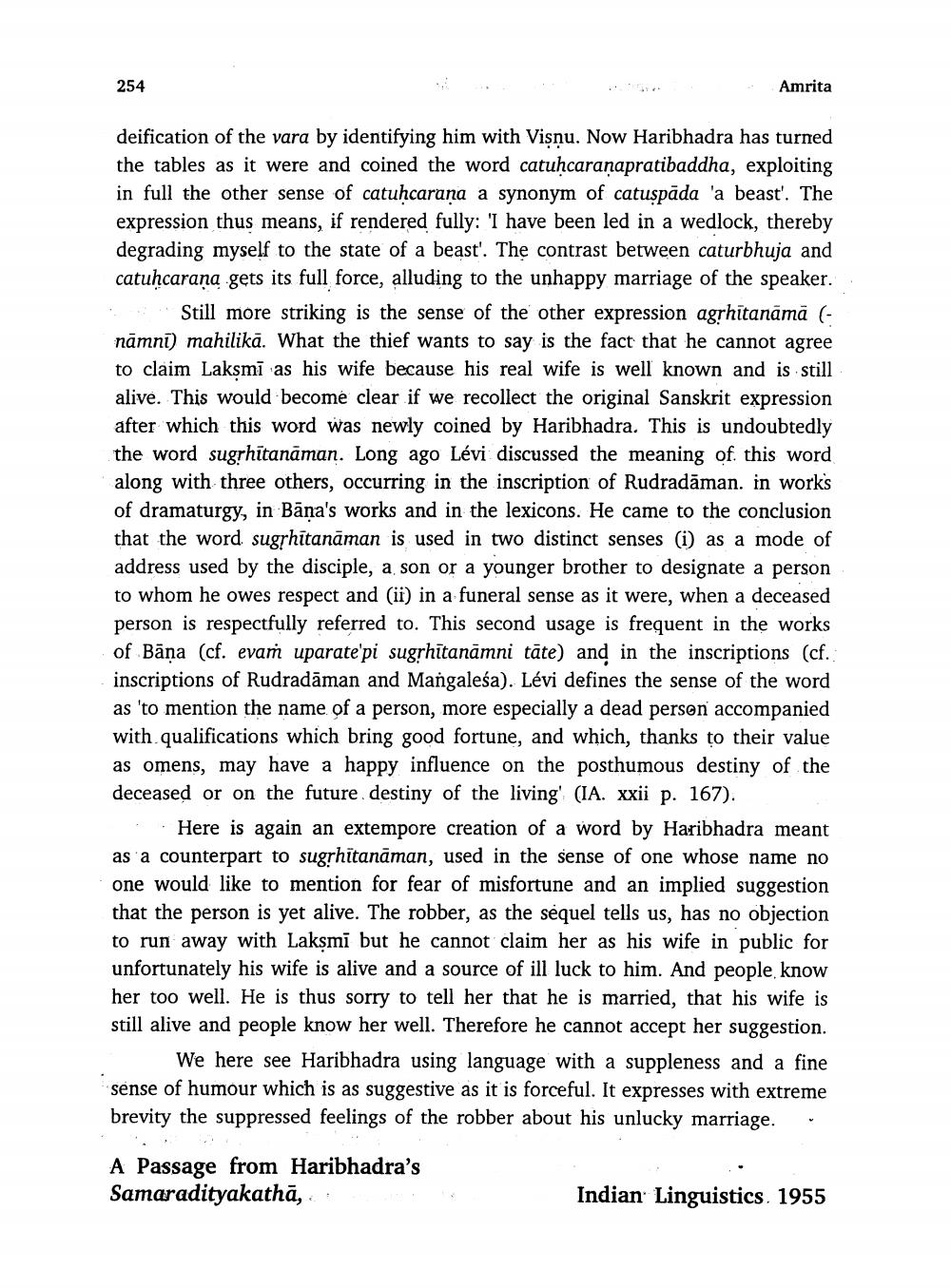________________
254
Amrita
deification of the vara by identifying him with Visnu. Now Haribhadra has turned the tables as it were and coined the word catuhcaranapratibaddha, exploiting in full the other sense of catuḥcarana a synonym of catuspāda 'a beast'. The expression thus means, if rendered fully: 'I have been led in a wedlock, thereby degrading myself to the state of a beast'. The contrast between caturbhuja and catuhcarana gets its full force, alluding to the unhappy marriage of the speaker.
Still more striking is the sense of the other expression agrhitanamā (nāmni) mahilikā. What the thief wants to say is the fact that he cannot agree to claim Laksmī as his wife because his real wife is well known and is still alive. This would become clear if we recollect the original Sanskrit expression after which this word was newly coined by Haribhadra. This is undoubtedly the word sugrhītanaman. Long ago Lévi discussed the meaning of this word along with three others, occurring in the inscription of Rudradāman. in work's of dramaturgy, in Bāņa's works and in the lexicons. He came to the conclusion that the word sugrhītanāman is used in two distinct senses (i) as a mode of address used by the disciple, a son or a younger brother to designate a person to whom he owes respect and (ii) in a funeral sense as it were, when a deceased person is respectfully referred to. This second usage is frequent in the works of Bāna (cf. evam uparate'pi sugrhitanāmni tāte) and in the inscriptions (cf. inscriptions of Rudradāman and Mangaleśa). Lévi defines the sense of the word as 'to mention the name of a person, more especially a dead person accompanied with qualifications which bring good fortune, and which, thanks to their value as omens, may have a happy influence on the posthumous destiny of the deceased or on the future destiny of the living' (IA. xxii p. 167).
Here is again an extempore creation of a word by Haribhadra meant as a counterpart to sugrhitanāman, used in the sense of one whose name no one would like to mention for fear of misfortune and an implied suggestion that the person is yet alive. The robber, as the sequel tells us, has no objection to run away with Lakşmi but he cannot claim her as his wife in public for unfortunately his wife is alive and a source of ill luck to him. And people know her too well. He is thus sorry to tell her that he is married, that his wife is still alive and people know her well. Therefore he cannot accept her suggestion.
We here see Haribhadra using language with a suppleness and a fine sense of humour which is as suggestive as it is forceful. It expresses with extreme brevity the suppressed feelings of the robber about his unlucky marriage. "
A Passage from Haribhadra's Samaradityakathā, .
Indian Linguistics, 1955




